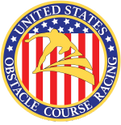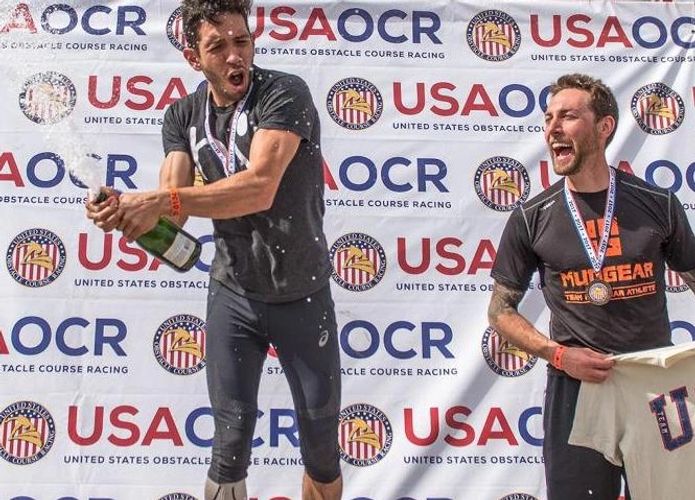

In the past few months, two organizations that hope to help govern the sport of OCR have been rebranded and, more important, taken major steps to becoming forces to help advance OCR from its current status as an exciting, competitive pastime to the level of an internationally recognized sport. Their activities have the potential to improve OCR for everyone from elite athletes to people trying out their first mom-and-pop local race. Even if you have no interest in elite athletes, the actions of these organizations will make the sport better for everyone.
Who They Are
At the top of the pile is World OCR, formerly known as the IOSF. As per their website: “World OCR, the Fédération Internationale de Sports d’Obstacles (FISO) is the world governing body and sole competent authority for obstacle sports and related disciplines. We are an independent association composed of national member federations worldwide.”
Let’s break that down: they are the world governing body. What does that mean? They are the OCR equivalent of FINA for swimming, the ITU for triathlon, or the IAAF for track and field. These organizations set the rules for competition. They organize world championships. They determine who goes to the Olympics every four years. Some of them are powerful, wealthy organizations,(hello, FIFA !). Others, not so much. One thing they all have in common is that they exist to advocate for their sport and to support the athletes who take part.
What does this have to do with you?
More than you might think. If you’ve ever done a triathlon, the rules of competition are set, generally speaking, by the people at the ITU. Safety standards that allow race organizers to get insurance also trickle down from the ITU. Even more common sports feel the effect of the international governing bodies; if you ran a marathon lately and noticed that it was a Boston-qualifier, that means that the course was certified according to standards that the BAA, USATF and the IAAF all came up with and approved.
I spoke with Ian Adamson, the President of World OCR, and he explained that World OCR will make OCR “safer, cheaper, and fairer” (maybe not as inspirational as “Citius, Altius, Fortius”, but we’ll take it). The safety part includes working with the ASTM process of establishing standards, including the requirements for obstacle construction and the need for medical personnel at events. Safer events can make for cheaper events: our sport is riskier than most, and insurance is a big expense for race organizers. Safety standards reduce risk, which makes insurers happy, which means they can charge less, which makes races more affordable. Setting up rules that can be applied to all races and that are widely understood mean that races can be fairer. Something that applies to all three would be the implementation of WADA anti-doping standards. Doping is both a safety consideration (it’s banned because it’s not safe) and a fairness concern (doping athletes can get an unfair advantage), and the application of the same standards across all races can make things cheaper when elite athletes are getting tested.
World OCR is “composed of national member federations worldwide.” This takes us to the next level, the recently re-branded USAOCR (not to be confused with AOCRA ). So far, their activities have been fairly quiet, which is not to say that they are not being active. What most OCR fans will remember was their event last year in Miami, which was tacked on to a local Spartan Race. What I learned from Jamie Monroe, USAOCR Co-Chair, was that this event was put together rather quickly in order to determine who would represent the US at an upcoming international OCR competition, an event that ended up being canceled.


In the meantime, USAOCR is working hard to get launched towards bigger and better things. I am reminded of the early days of OCR, when events were put together based on few resources, a lot of volunteer labor and good will, and with plans to create something bigger. USAOCR is still working on a revenue model, one that might look something like the way USAT operates. If you register for a local triathlon, you are probably asked if you are a USAT member. If you are not a member, you are either invited to join or required to pay for a one-day membership. Either way, the membership covers your insurance for the race. Again, going back to the safety element, USAT sanctions events, which means that the insurance side of things is taken care of through the national governing body’s bureaucracy.


Other goals for USAOCR include the development of a ranking system for OCR athletes across the US. This requires paying software developers, and given USAOCR’s shoestring budget, this isn’t happening yet. Since AOCRA has also stated this as a goal, it seems that some cooperation is in order here. USAOCR also wants to set up a way of determining who gets to represent the US in international competition. For now, it is not in the position to host events on its own where champions could be crowned, and for the future, it appears that this would take place at events that other race organizers host and which are branded by USAOCR as national championships.
Why FISO?
Why the French name for World OCR? It’s not officially called Fédération Internationale de Sports d’Obstacles just to sound classier. And why is it headquartered in Switzerland, a country not especially known for its OCR heritage? This leads to the million-dollar question: what about the Olympics? I hadn’t mentioned getting OCR into the Olympics until now, because that’s the first thing people bring up when the subject of governing bodies comes up, and it shouldn’t be, at least not yet.
The name is French because the IOC is headquartered in Switzerland, which makes it the natural home for the governing body of a sport that aspires, someday, to be part of the Olympic Games. And while that is a goal, it can’t be the stated goal for a number of years. The IOC has hurdles and milestones that have to be passed before a sport can even be considered for a spot at the Games. These include the less glamorous tasks that World OCR is going through right now: getting federations set up in countries around the world, having conferences and other more paperwork-related activities. They don’t make for dramatic Instagram posts, but they are necessary all the same.
A more tangible part of the process is setting up world competitions, and the first such event will be the Shardana World Team Challenge on April 14 USAOCR is sending four athletes to represent the US, and I hope to hear more about their experiences when they get back. If you are asking yourself “But what about the OCRWC?” you would not be alone. For now, World OCR’s position is that this event is part of a racing brand, in the same way that Spartan’s World Championship or World’s Toughest Mudder are branded events. In the future, cooperation between OCRWC and World OCR might help both organizations achieve their goals
No one likes to cheer on bureaucracy, but I would argue that it is sometimes necessary, and not even a necessary evil. An example: OCR had its first doping scandal last year when Ryan Woods tested positive for a banned substance after the OCRWC. The question arose whether he would be banned from other OCR events, and he spent some nervous days waiting for phone calls from Spartan and Tough Mudder HQ’s. He was not alone in saying that if only we had a governing body to consult about questions like this, we all could have had some certainty about his ability to race in the upcoming season. USAOCR and World OCR exist to fill that gap. Elite racers should be pushing for these organizations to thrive, and fans of the sport should be rooting for them, too.
Christopher Stephens
Latest posts by Christopher Stephens (see all)
- The Active/Mudder/Spartan Standoff - December 30, 2019
- Will Dean Forced Out Of Tough Mudder (And What Else Co-Founder Lawsuit Alleges) - February 25, 2019
- Terrain Race, the Spirit Airlines of OCR? - September 24, 2018













